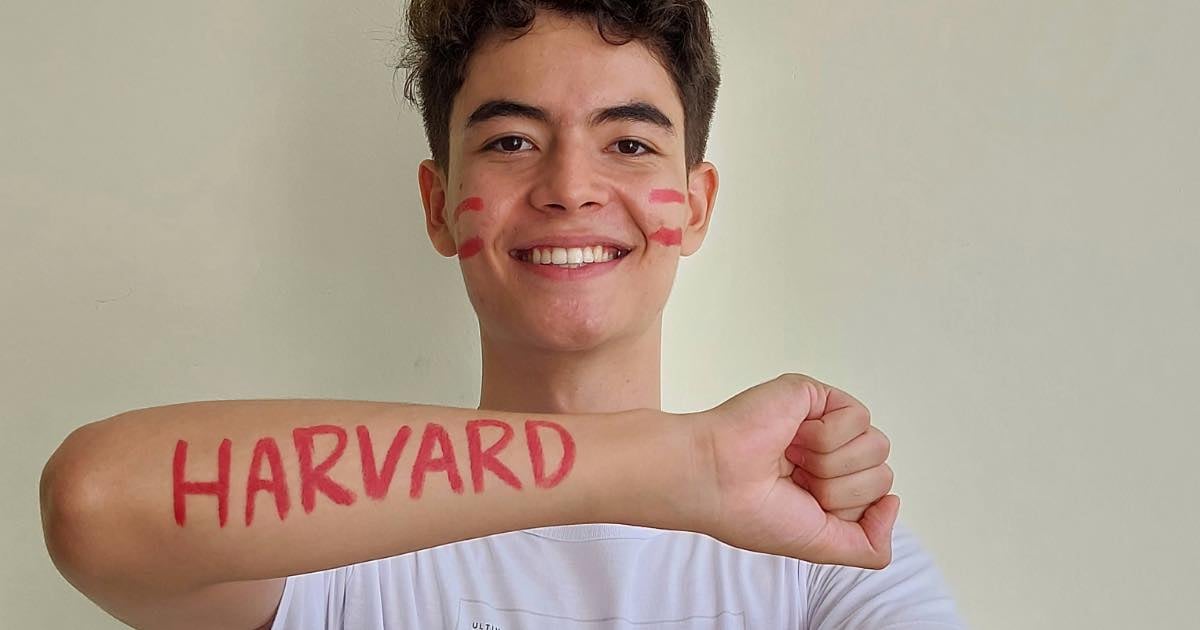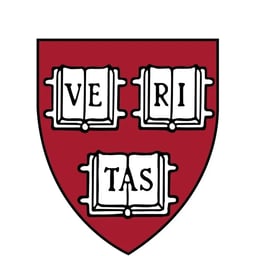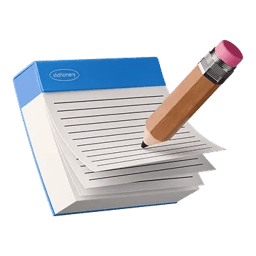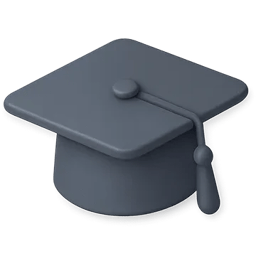Comment mon voyage d'études à l'étranger a commencé
Cela peut être un peu spécifique au Brésil, mais j'étudie dans une école connue sous le nom d'Institut Fédéral avec le portugais comme langue d'enseignement. C'est une combinaison d'une école traditionnelle et de programmes techniques, parmi lesquels on peut choisir. J'ai opté pour l'informatique, qui est essentiellement de la science informatique. J'ai un vif intérêt pour la technologie, et c'est aussi ce que je vise à étudier à l'université.
Depuis que je suis jeune, j'ai dit à mes parents que je voulais travailler à la NASA. J'ai toujours été enthousiaste à l'idée d'aller à l'étranger, de découvrir de nouvelles cultures, de rencontrer de nouvelles personnes et de travailler à l'international. Cependant, dans ma petite ville, nous manquons de ressources, et personne ici n'a jamais étudié à l'étranger. Il n'y avait pas beaucoup d'informations sur la façon de poursuivre ce rêve ; j'avais juste cette aspiration.
En commençant ma première année de lycée, j'ai commencé à faire des recherches et à explorer sérieusement cette option. Je savais que je devais m'impliquer dans des activités extrascolaires et maintenir une moyenne élevée. Mais je me demandais encore : "D'accord, je participe à toutes ces activités extrascolaires et je maintiens mes notes, et ensuite ? Comment est-ce que je postule concrètement ?" C'est alors que j'ai découvert EducationUSA. Ils gèrent un programme appelé Opportunity Funds, disponible ici au Brésil et potentiellement dans d'autres endroits du monde. Ils sélectionnent 20 étudiants qui ont besoin d'un soutien financier dans tout le pays et fournissent une assistance comme la prise en charge des frais de SAT et de candidature. Ils m'ont également mis en contact avec un conseiller, et c'est ainsi que j'ai réussi à tout rassembler et à soumettre ma candidature.

Pourquoi Harvard
Comme je suis très intéressé par la technologie et la recherche, j'ai privilégié les écoles dans ces domaines lors du choix des universités. De plus, je savais que j'avais besoin d'une bourse complète, j'ai donc cherché des universités qui couvrent tous les besoins des étudiants internationaux. Je me suis concentré sur les universités "need-blind", mais il n'y en a que quelques-unes, et Harvard en faisait partie.
En plus de cela, j'adore la région de Boston - elle est pleine d'étudiants internationaux et il y a une grande communauté brésilienne, ce qui est génial. J'aime aussi beaucoup MIT, et j'y ai également postulé en Regular Decision, mais la décision n'est pas encore tombée. Pour Harvard, j'ai postulé en Restrictive Early Action. Je pourrais bientôt faire face à une grande question : si je suis admis à MIT, est-ce que j'y vais ?
Mais ma liste d'universités ne comprenait pas que des Ivy League. J'ai postulé à des endroits comme MIT, Stanford, Carnegie Mellon, Northwestern, Johns Hopkins, et ensuite quelques options de sécurité, comme l'Université de Richmond, l'Université du Wisconsin-Madison, et l'Université du Colorado Boulder.

Activités extrascolaires
Je me suis concentré sur la création d'un thème global autour de la technologie dans mes activités. L'activité principale que j'ai entreprise a été la co-fondation d'une association à but non lucratif qui propose des ateliers d'éducation numérique et du mentorat aux étudiants. Elle ressemble un peu à Borderless, mais est adaptée à l'éducation numérique. Nous sommes également présents sur TikTok et Instagram, où nous partageons des conseils et organisons des ateliers en direct.
De plus, j'ai participé à plusieurs projets de recherche au lycée. Mon école met l'accent sur la recherche et offre des bourses pour cela, et j'ai réussi à en obtenir quelques-unes. Tout d'abord, pendant la pandémie, j'ai codé une application qui aide les gens à vérifier si une information est vraie ou non. J'ai présenté ce projet à la plus grande foire scientifique du Brésil et j'ai remporté la première place, ce qui en a fait à la fois une activité extrascolaire et une distinction.
J'ai également travaillé sur un projet pour un parc national près de chez moi, qui souffre souvent d'incendies de forêt. J'ai créé un système de détection d'incendie qui alerte automatiquement les autorités, contribuant ainsi à accélérer la lutte contre les incendies. Ce projet a été présenté à la plus grande foire scientifique d'Amérique latine, et j'ai fini par remporter la deuxième place.

Un autre projet dont je suis fier porte sur la physique quantique. Autour de notre parc national, il y a beaucoup de tourisme, et certaines personnes induisent les touristes en erreur avec des affirmations sur la guérison quantique et le coaching quantique. J'ai fait des recherches sur ce sujet et elles ont été publiées dans l'une des plus grandes revues d'enseignement de la physique du Brésil.
Enfin, j'ai une certaine expérience internationale ; j'ai participé à un programme d'échange au Japon appelé Sakura Science High School et j'ai été sélectionné par l'ambassade des États-Unis pour le programme Youth Ambassadors pour visiter les États-Unis.

Statistiques : GPA, TOEFL, ACT
Commençons par le TOEFL, je l'ai passé une seule fois et j'ai obtenu un score de 111 sur 120. Je savais que ce score serait suffisant, car la plupart des écoles n'exigent qu'un minimum de 100.
En ce qui concerne les tests standardisés, j'ai opté pour l'ACT et je l'ai passé deux fois. La première fois, j'ai obtenu un score de 32, et la deuxième fois, j'ai également obtenu un 32. J'ai postulé à Harvard sans envoyer mes résultats de test car ils n'autorisent pas le "superscoring" pour l'ACT. Lorsque je fais le "superscoring" de mon ACT, j'obtiens un 34, ce qui est assez solide, mais un 32 ne me semblait pas suffisant pour Harvard. Cependant, MIT accepte les "superscores", donc j'y ai envoyé mes résultats d'ACT.
Concernant mon GPA, au Brésil, nous utilisons un système de 0 à 10, et je ne l'ai pas converti à l'échelle standard de 4.0. Mon GPA est de 9,86/10.
Comment j'ai abordé ma Personal Statement
Pour être tout à fait honnête, je ne suis pas vraiment un écrivain, et je n'apprécie pas particulièrement le processus d'écriture, que ce soit en anglais ou en portugais. L'essai du Common App a vraiment été un défi de taille. Cependant, j'ai beaucoup lu en ligne, examiné les essais Common App d'autres personnes, et j'ai remarqué un certain schéma : la plupart commencent par une histoire de fond ou d'enfance, puis approfondissent quelque chose, et finissent par faire le lien avec leurs apprentissages ou leur spécialité envisagée.
Pour ma Personal Statement, j'ai décidé de parler de la masculinité toxique et de son impact sur moi depuis mon enfance jusqu'à aujourd'hui. J'ai partagé l'histoire des attentes de mon père et comment j'ai grandi à partir de cette expérience. C'est assez personnel et n'est pas directement lié à ma spécialité - ça parle simplement de moi et de qui je suis. J'ai essayé de garder un ton léger, et même si j'ai mentionné mes défis, je me suis davantage concentré sur la façon dont je les ai surmontés, mettant en avant ma résilience.

Détails de l'aide financière
Comme je l'ai mentionné précédemment, lors de mes recherches sur les universités, j'ai privilégié celles offrant une aide financière complète, ce qui est nécessaire pour quelqu'un issu d'un milieu à faible revenu comme moi. Certaines des universités sur ma liste n'offraient pas directement de bourses complètes, mais j'ai également obtenu une bourse externe de mon pays pour couvrir ces frais.
Harvard m'a offert une aide financière complète, car j'ai été accepté et le revenu de ma famille est inférieur à leur seuil de 85 000 dollars par an. L'aide financière ne couvre pas seulement les frais de scolarité - elle inclut tout : la nourriture, le logement, les frais médicaux, les livres, les fournitures, etc.
Pour demander une aide financière, j'ai suivi le processus habituel, en utilisant le CSS Profile et en soumettant des documents supplémentaires via iDoc.
Mon expérience d'entretien à Harvard
Le processus d'entretien pour Harvard a été une expérience assez stressante pour moi, car c'était le seul entretien universitaire que j'avais. J'avais retiré toutes mes autres candidatures, à l'exception du MIT, où je pourrais avoir un autre entretien.
Cependant, l'intervieweur, un ancien élève de Harvard originaire du Brésil, m'a mis à l'aise, créant un environnement confortable. Il semblait que son intention principale était de comprendre qui je suis en tant que personne. Il m'a posé des questions sur la vie dans ma ville natale, s'est intéressé à mes activités extrascolaires et, naturellement, m'a demandé pourquoi je voulais aller à Harvard. Il n'y a pas eu de questions pièges ou de sujets inhabituels, comme me demander mon film préféré ou des scénarios hypothétiques de voyage dans le temps.
Ressources qui m'ont aidé
Comme première étape pour obtenir de l'aide, je recommanderais de trouver un bureau EducationUSA près de chez vous, car ils ont des conseillers formidables. Je ne suis pas sûr si le programme Opportunity Funds est mondial ou uniquement brésilien, mais ça vaut le coup de vérifier. C'est un programme très compétitif, cependant, car j'ai dû postuler, rédiger des essais, obtenir des lettres de recommandation, etc. Seuls 20 étudiants sont sélectionnés, mais ils fournissent une aide financière substantielle pour les frais de candidature et des conseils.
Utiliser Internet est également essentiel. Des sites web comme Borderless et College Essay Guy ont été super utiles et sont remplis d'informations sur le processus de candidature à l'université.
Pour le TOEFL et l'ACT, j'ai utilisé des livres officiels, qui m'ont aidé à comprendre non seulement le contenu, mais aussi ce que les examinateurs recherchaient.
Enfin, j'ai aussi beaucoup utilisé Reddit et Quora, principalement pour découvrir des choses qu'on ne peut pas trouver sur les sites web des universités, comme la culture du campus et la scène festive, ou comment sont vraiment les professeurs.
Essais supplémentaires
Harvard demande cinq essais supplémentaires, chacun de 200 mots. Le premier portait sur les expériences de vie et comment elles contribueraient à Harvard. Ici, j'ai longuement parlé de mon parcours, venant d'une petite ville du Brésil rural, et des ressources limitées dont je disposais. Mais au lieu de simplement souligner les difficultés, je me suis concentré sur la façon dont je les ai surmontées et mes projets d'utiliser la technologie pour redonner à ma communauté.
Le suivant, sur la contribution à Harvard, était assez difficile. Comment dire que vous allez contribuer alors que vous n'y avez même pas encore été ? J'ai donc opté pour quelque chose de plus léger, décrivant comment je veux aider à créer un espace où les gens se sentent en sécurité pour partager leurs différences.
Pour la question sur l'expérience intellectuelle, j'ai parlé de mon projet de physique quantique. La physique quantique est un mot à la mode, et j'ai pensé que cela pourrait impressionner les responsables des admissions. J'ai expliqué les détails du projet et ses objectifs de prévention de la désinformation dans ce domaine.
Ensuite, pour l'essai sur les activités extrascolaires, j'ai choisi de mettre en avant mon projet de système de détection d'incendie. Il ne s'agit pas seulement de technologie ; il s'agit d'aider ma communauté, ce qui est une valeur importante que je veux communiquer.
Enfin, concernant mes projets d'éducation, j'ai écrit que je veux retourner au Brésil et être un acteur du changement dans l'éducation numérique. J'ai parlé de l'amélioration de la technologie dans le programme des écoles publiques, car il y a un besoin évident. J'ai essayé de montrer un plan clair et une grande vision de ce que je voulais faire.






